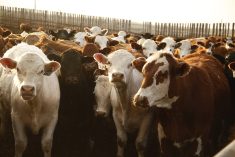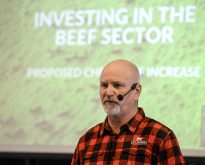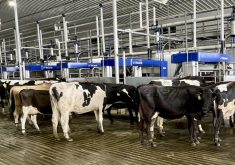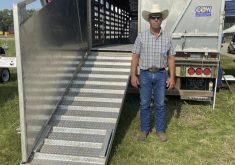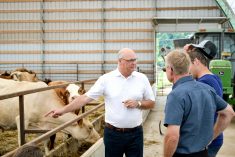A pay equalization pilot program offered by Cargill will ensure all Certified Sustainable Beef Program (CSBP) producers receive a minimum of $400, a Cargill spokesperson says.
Cargill recently announced the Certification Recognition Credit, an incremental payment issued in conjunction with existing qualifying cattle credits for cattle processed in 2022.
“We want to recognize that just being certified is a huge value to all of us,” said Cargill’s Jeffrey Fitzpatrick. “It’s gratifying to see how many producers have certified.”
Read Also
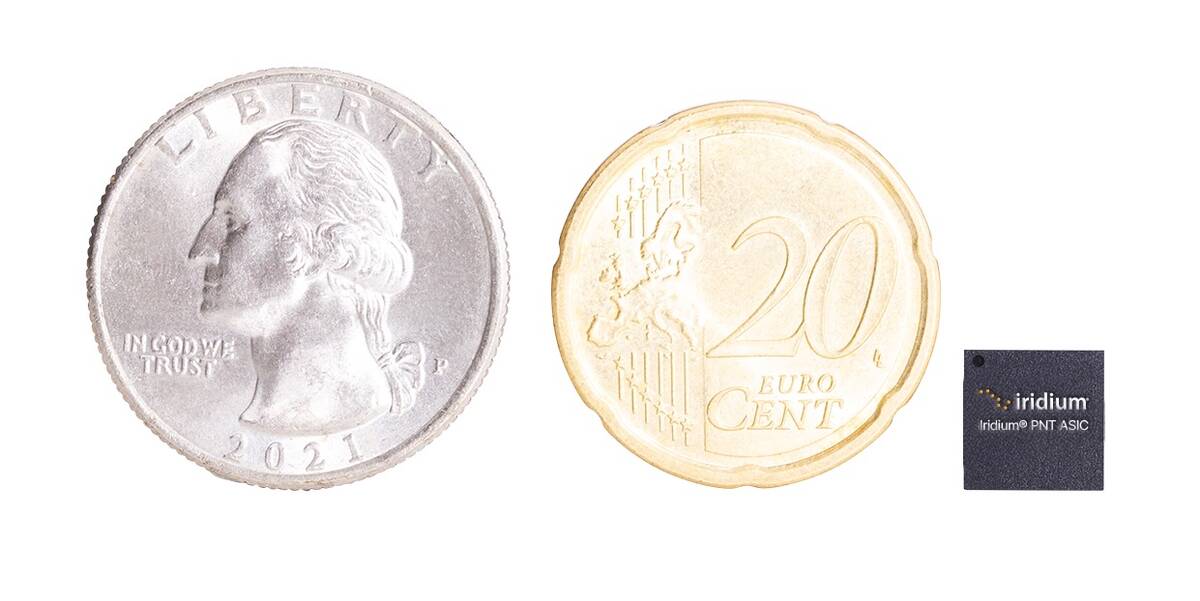
New Iridium technology helps block GPS spoofing
A tiny new chip will allow Iridium’s Positioning, Navigation and Timing (PNT) signals to be received much smaller devices, create a backstop against Global Positioning Systems (GPS) spoofing.
Why it matters: The beef sector has several levels of production and funds from programs don’t always flow to all of them.
Fitzpatrick joined Cargill in 2020 to become BeefUp Sustainability’s North American engagement lead, but he was also heavily involved in beef programs as McDonald’s national sustainability and agricultural lead for 16 years.
BeefUp Sustainability is Cargill’s program to lower its carbon emissions by 30 per cent by 2030.
Through the pilot program, launching in early 2023, the Canadian Cattle Identification Agency (CCIA) will track producer credits applied to certified operators who maintained a Canadian Roundtable for Sustainable Beef certification through 2022 into 2023.
Using that data, Cargill will make incremental payments to qualified participants to ensure everyone receives a minimum of $400 from the program regardless of gaps in the supply chain.
[RELATED] Funding, quality industry programs play a big part in on-farm beef sector investments
Previously, if cattle moved through a non-certified producer in the value chain, (for example, the cow-calf and feedlot operators were certified but not the backgrounder,) they couldn’t claim the $20 per head premium.
Operators who made $400 or more from the program throughout the year will not qualify for payments.
Fitzpatrick said the payment will remain after the pilot ends, subject to modifications.
In addition to the credit, Cargill is partnering with the beef roundtable to make a broader-scale change within the program. In the second quarter of 2023, it will launch a monthly payment schedule reflecting the prior month’s slaughter. This is designed to address the two-to-four-month delay producers now encounter.
“Naturally, with doing that, you’re likely to see smaller payment amounts, but they’re going to come more frequently, so hopefully that will help tie more directly to what animals these credit dollars attach to,” said Fitzpatrick.
Cargill began working with the CCIA last year to access the data that links animals to producers more efficiently and at no extra cost.
Fitzpatrick said data privacy and protection were common concerns raised by producers who were reluctant to participate in the audit, so it required a deliberate and thoughtful approach.
“The primary goal here is just really about focusing on maintaining trust with producers as we go,” he said.
Additionally, Cargill is working with cattle buyers on a system that provides ear tag reports on animals qualified for the program. While the tool may be feeder-facing, it can also apply to backgrounders and cow-calf operations to engage more of the value chain in the program.
“We’re encouraging feeders to take that one more step back and talk to the people they’re getting supply from — the cow-calf people, backgrounders — to say these ones qualified and these didn’t,” said Fitzpatrick.
The demand for CSBP products has far outstripped supply, reinforcing the program’s value from the producer side and from Cargill’s customer retailers like Loblaws and McDonald’s.
Program enhancements focus on retaining certified producers and encouraging new ones to join. The audit differences between CRSB and Ontario Corn Fed Beef Quality Assurance are negligible, and the $400 recognition credit and $20 per head premium offset the cost of certifying every five years.
The goal isn’t to create a niche product available only to those who pay a premium, but rather, to show that all Canadian beef production is sustainable, he said.
“Canada produces the safest, most sustainable, highest-quality beef in the world. This is a way to recognize the whole value chain, not specific actors.”
Fitzpatrick acknowledged these programs address only some of the issues, but Cargill aims to benefit all partners while recognizing upfront certification is a critical component.
Fitzpatrick said BeefUp and CSBP provide retailers and grocers with a powerful communication tool that connects with consumers of all ages.
The programs reflect a system with third-party audits, chain-of-custody requirements and proof of certified beef and producers’ dedication to quality and sustainability, he said.
“That will make them continue to want to buy (beef) and feel positive about it. The worst thing that can happen is that people start feeling beef is a guilty pleasure. We want people to understand the best thing you can do for climate change today is to eat Canadian beef.”







